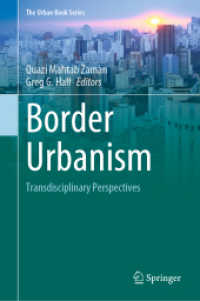- ホーム
- > 洋書
- > 英文書
- > Politics / International Relations
基本説明
New in paperback. Hardcover was published in 2007. Drawing from interviews, statistical analysis, and archival research, this book analyzes how elite politics impact both monetary and banking policies.
Full Description
The contemporary Chinese financial system encapsulates two possible futures for China's economy. On the one hand, extremely rapid financial deepening accompanied by relatively stable prices are both manifestations of a vigorous growth trajectory that will one day make China the world's largest economy. On the other hand, the colossal store of non-performing loans in the banking sector augurs a troubling future. Factions and Finance in China inquires how elite factional politics has given rise to both of these outcomes since the reform in 1978. The competition between generalists in the Chinese Communist Party and politically engaged technocrats over monetary policies has time and time again prevented inflation from spinning out of control. Shih shows that elite politics has exerted a profound impact on monetary policies and banking institutions in contemporary China.
Contents
1. Introduction; 2. China's financial performance in comparative perspective; 3. The banking system: flexible institutions and party domination; 4. Factional politics and its financial implications; 5. Factional politics, distribution of loans, and inflationary cycles: several quantitative tests; 6. The collapse of discipline: the first two inflationary cycles and the fiscalization of Chinese banks; 7. The height of the politics of inflation, 1986-1996; 8. The long cycle: 1998-2006; 9. Concluding discussion.








